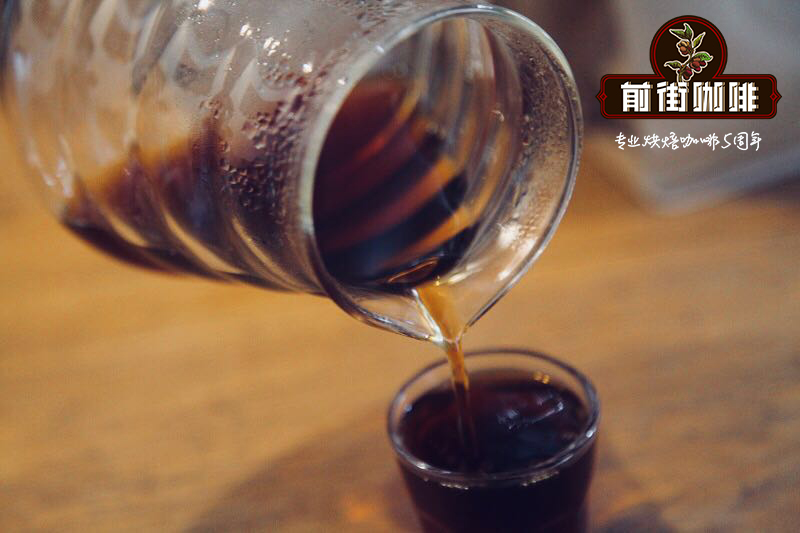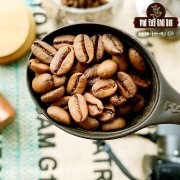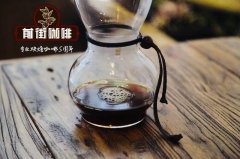Ethiopian coffee beans| Ethiopian coffee producing areas| Guji Kaiyong Mountain Single Farm

Professional coffee knowledge exchange more coffee bean information please follow the coffee workshop (Wechat official account cafe_style)
Ethiopian coffee beans Guji Kaiyong Mountain single farm sun-washing micro-batch
Ethiopia Guji Kayon Mountain Farm Natural&Washed
Country Ethiopia (Ethiopia)
Producing area Oromia Region
Guji (Guji Zone)
Shaquiso (Shakisso Woreda)
Processing plant Kaiyong Mountain Manor has its own processing plant Kayon Mountain
Producer Ato Esmael
1900-2200 meters above sea level
Variety Ethiopian ancient variety (Heirloom)
The annual rainfall is about 1200-1400 mm
Treatment water washing, African scaffolding drying
Sun drying of African scaffolding
Founded in 2012 by Ato Esmael and his family, Kaiyong Mountain single Farm covers an area of about 300 hectares, of which more than 200 hectares are still pristine forests. The selected seat on the Kaiyong Mountain Farm is located in the elite Shaquiso producing area of Guji (Shakisso/Shakiso), more than 500 kilometers from the capital, Addis Ababa. The seat of Guji producing area is actually on the east side of Yega Schiffe, but the part next to Yega Chevy is the Hambela producing area. If you want to go to Shachiso, you usually don't go through Yega Chevy, but travel south from the capital to the town of Yirga Aleam after about six hours, abandon the road on the right to Yega Chet, turn into Highway 82 on the left, and go all the way southeast. It will take about four hours to reach Shaquiso (N 5 °46 & # 39). 21 "E38 °54 & # 39TIX", about 1730m above sea level.
The most famous economic activity in Guji producing area in history is gold mine! And the main gold mining area K ibre Mengist is near the northeast of the town of Shakisuo, looking for beans up and down the mountains, there is no lack of opportunities to cross the mining area, or the remains of panning for gold through streams, the gold mining industry of real gold and silver is interesting compared with coffee black gold in the past.
Just like the two key trends that we have been observing and pursuing in previous years, one is the rise of Guji producing areas, and the other is the development of single farm system. This year seems to be a year when these two trends blossom and bear fruit. Among several trends in the development of boutique coffee in Ethiopia, an important trend and forecast that we discussed with you at the cup test the year before last is the rise of the single farm system. If you recall, according to the Ethiopian decree, there are three coffee export systems: (1) the largest private processing plant system for export through ECX; (2) the cooperative system; and (3) the single farm system. In these three systems, cooperatives and single estates can be exported directly without competitive bidding through ECX, which can be said to have completely reliable traceability / product curriculum vitae (traceability). However, if we get to the bottom of the matter, after all, the cooperative is also a centralized treatment of cherries harvested by small farmers, which is not 100% traceable. After all, a single farm is the only possibility of moving forward to the next generation. In fact, the single farm system has always existed in Ethiopia, but the percentage has not been high, and it has traditionally belonged to a large number of commercial batches that do not attach importance to quality. With Ethiopia's emergence in the third wave of boutique coffee in the past two or three decades, in addition to traditional coffee workers, Ethiopia has also gradually emerged a number of new talents influenced by Western culture, hoping to bring changes to this industry. in addition to traditional exporters have devoted themselves to producing areas, they have also attracted an upsurge of returning from Europe and the United States to their hometown. How important is the single farm system (which we temporarily call Single Farm Project, or SFP for short)? We all know that Ethiopia is dominated by a smallholder system, but the smallholder system is impossible to achieve very important implementation concepts such as full traceability, single variety batches, special treatment batches, customized batches and so on. Single farm is the only answer to all these questions.
There are also many differences between the Guji producing area and the Yega Xuefei producing area, which is generally pursued by everyone, in terms of location, local conditions, nationality, language, and so on, while the coffee flavor is on the premise of showing the typical wonderful flavor of Ethiopia. there are also some subtle differences. Guji belongs to the largest Oromo ethnic group in Ethiopia, and uses Oromifa, while Yega Chefe is the traditional living area of the G edio. On the whole, the Yega Xuefei producing area became famous early, while Guji is a rising star. On the one hand, the Guji area is larger, and it is not difficult to find fertile virgin land protected by primeval forests at high altitude. Moreover, Yega Xuefei has long been a battleground for military families because of its fame. Most of the new processing plants or farms are in the Guji producing area, and it is not difficult to imagine that Guji will be an important center for the innovation of Ethiopian boutique coffee in the next few years.
The washing batch shows the exquisite and meticulous Ethiopian flavor of jasmine, lemon peel, coffee flower, bergamot, white pomelo and peach, while the sun batch presents our favorite comprehensive juice flavor of tropical fruits such as blueberry, mango and strawberry.
Qianjie coffee: Guangzhou bakery, the store is small but a variety of beans, you can find a variety of unknown beans, but also provide online store services. Https://shop104210103.taobao.com
Important Notice :
前街咖啡 FrontStreet Coffee has moved to new addredd:
FrontStreet Coffee Address: 315,Donghua East Road,GuangZhou
Tel:020 38364473
- Prev

Ethiopian Coffee beans | Ethiopian Coffee producing areas | Yilu Babo, Rosa Village
Professional coffee knowledge exchange more coffee bean information please follow the coffee workshop (Wechat official account cafe_style) Ethiopian coffee beans rose summer village garden No. 13 Iru Babo washing Ethiopia Gesha Village Coffee Estate Illubabor Wash production area SNNPR Region Banchmaji (Bench Maji Zone) Gori Gesha Fores
- Next

Individual coffee beans are recommended | what coffee beans are used for hand-made coffee? Lili Manor, a good way to Kenya
Professional coffee knowledge exchange more coffee bean information please follow the coffee workshop (Wechat official account cafe_style) individual coffee bean recommendation-Kenya Asaria Asali Kenya good way Lili Manor Pearl Bean Neri flavor description: flowers, blackcurrant, grapefruit aroma, purple berry notes, cranberries, rich acidity, syrup taste, delicate finish
Related
- Does Rose Summer choose Blue, Green or Red? Detailed explanation of Rose Summer Coffee plots and Classification in Panamanian Jade Manor
- What is the difference between the origin, producing area, processing plant, cooperative and manor of coffee beans?
- How fine does the espresso powder fit? how to grind the espresso?
- Sca coffee roasting degree color card coffee roasting degree 8 roasting color values what do you mean?
- The practice of lattes: how to make lattes at home
- Introduction to Indonesian Fine Coffee beans-- Java Coffee producing area of Indonesian Arabica Coffee
- How much will the flavor of light and medium roasted rose summer be expressed? What baking level is rose summer suitable for?
- Introduction to the characteristics of washing, sun-drying or wet-planing coffee commonly used in Mantenin, Indonesia
- Price characteristics of Arabica Coffee Bean Starbucks introduction to Manning Coffee Bean Taste producing area Variety Manor
- What is the authentic Yega flavor? What are the flavor characteristics of the really excellent Yejasuffi coffee beans?

